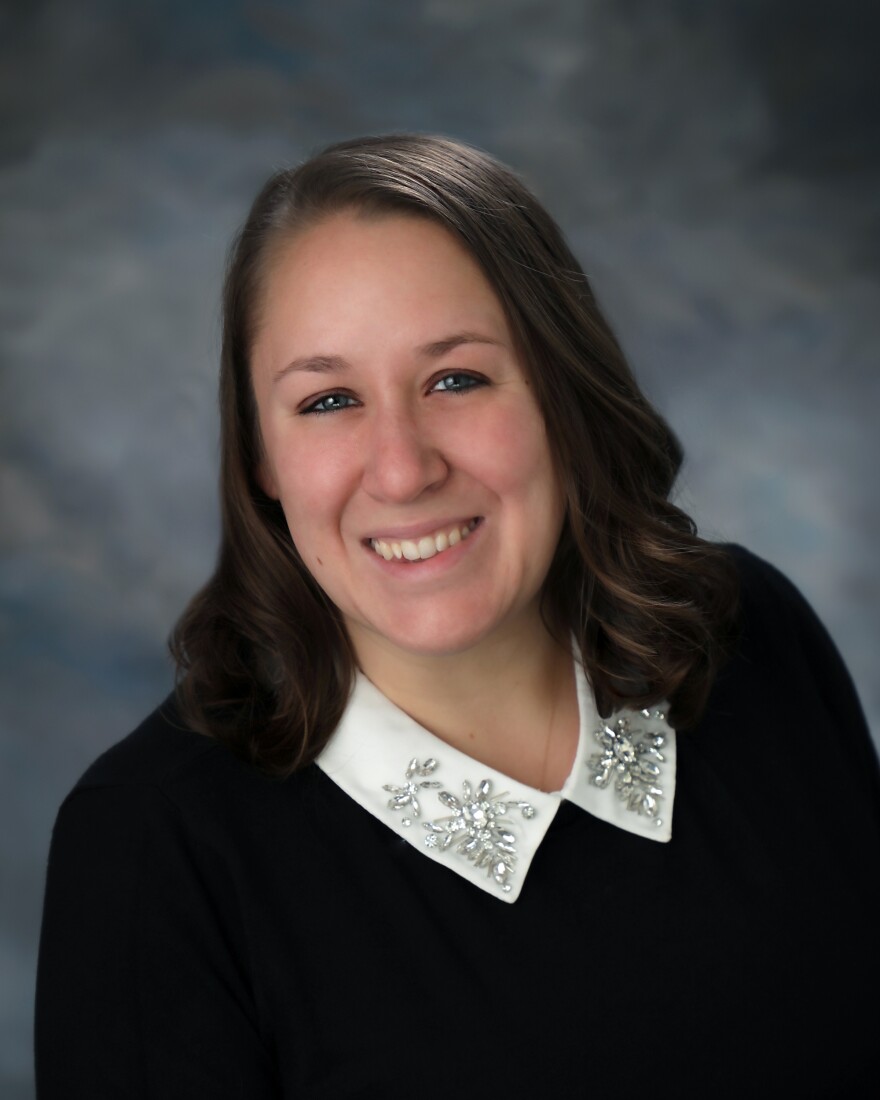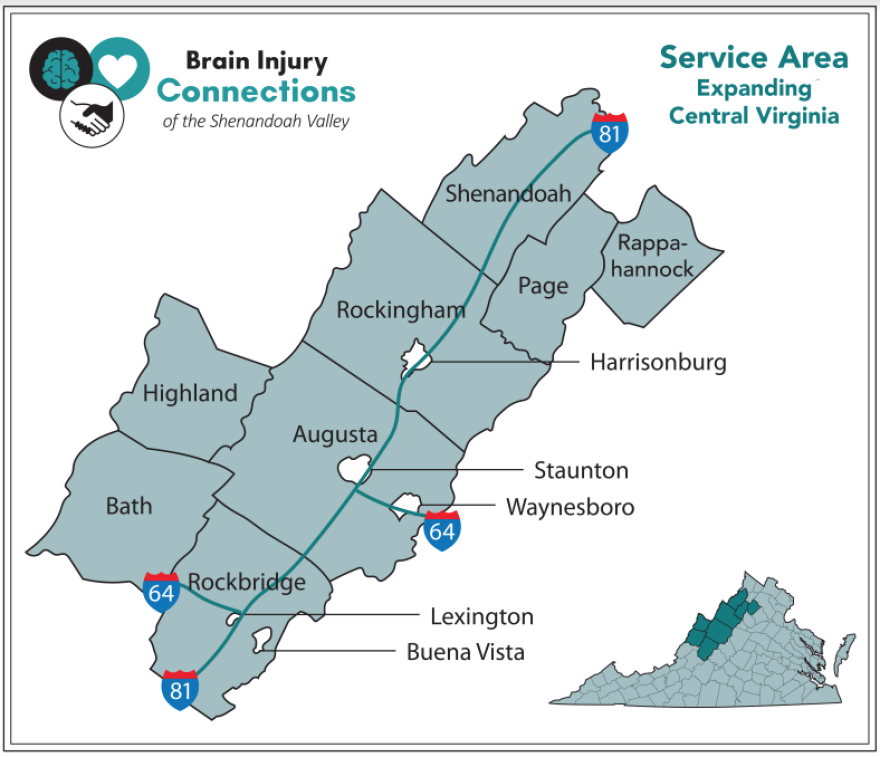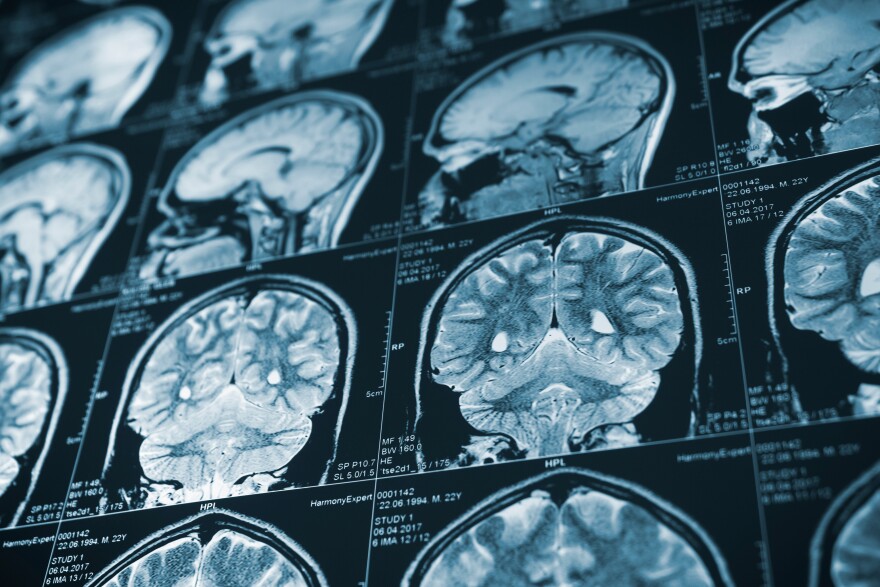A brain injury nonprofit is getting the word out about the signs of a stroke, and the services they offer to stroke survivors and caregivers. WMRA's Randi B. Hagi reports.
Brain Injury Connections of the Shenandoah Valley serves people living with disabilities after a brain injury, from Shenandoah down to Rockbridge counties and Bath and Highland over to Rappahannock. The Centers for Disease Control and Prevention says strokes are the fourth leading cause of death in Virginia.

ASHLEY DUNLAP: That's basically an interruption in blood flow to the brain. … Oxygen is not getting where it needs to be in the brain, and that means that cells can die.
Ashley Dunlap is the organization's lead case manager. She said strokes are unique to each person, and it might take someone around you to notice that you yourself are having one. The acronym "BE FAST" contains the signs of stroke and how to respond.
DUNLAP: Balance – usually there is un-coordination … dizziness. Eyes – there's usually a very sudden vision change, whether that's blurry, losing vision. … Facial drooping. Arms – you're really losing a lot of strength in your arms. Speech – slurred speech is something that usually we pick up on a lot quicker, because it's very noticeable, and time – time is of the essence.
Getting someone to a hospital quickly is key to their recovery. Once a stroke patient is discharged, Brain Injury Connections provides free case management services, including mental health referrals, help applying for benefit programs, and solutions to housing and transportation challenges. They also have in-person and virtual support groups.
DUNLAP: The best determinant of recovery is the social aspect of things.
Brain Injury Connections is currently recruiting volunteers to help stroke survivors get out, socialize, and do activities. Learn more on their website – bicsv.org.



